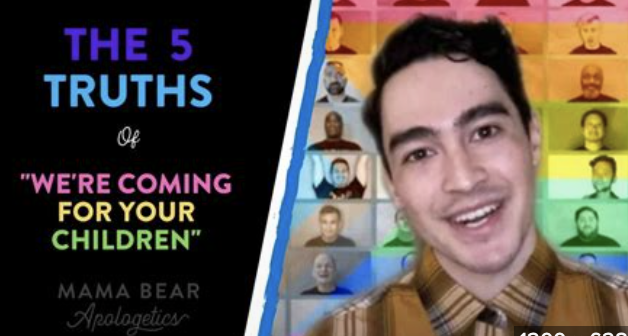Christmas Is For Babies, Advent Is For Men
What is Advent to you? If you are anything like me, most Advents have been a little different than previous Advents. As I get older, more attentive to the Church’s readings and the priests’ homilies as Advent approaches, I have a much different thought process than I did 10, 20, and 30 years ago.
As a child, Advent wasn’t even on my radar. I was always laser focused on Christmas morning. For me, Christmas was all about the traditional Christmas shows on t.v. throughout December, which were merely a precursor to the real meaning of Christmas, presents! Think of Ralphie in A Christmas Story. That could almost be a biography of my childhood Advent seasons.
As a teenager, my attention moved from the presents I would receive, to the nostalgia and experience of Christmas. The true meaning was in the traditional t.v. shows, the bowl games, Christmas-themed movies, the decorations, and the gatherings with others.
I now find myself middle-aged. To be honest, I still like the t.v. shows and movies I loved as a kid. To watch these with my children today is uniquely special. However, these are no longer my idea of the true meaning of Christmas, in fact, I am much more aware of the absence of Christ in most of them. Not to mention the fact that they aren’t even traditional. Nor are Christmas trees, Santa Claus, gift giving, or Christmas Carols. If one is looking for true tradition, we will not find it in a Macy’s parade, a silver screen classic or even a Charles Dickens book. Even the nativity scene was invented centuries later (by none other than St. Francis of Assisi). The true tradition of Christmas is found only in the Catholic Church, where it has been for 2,000 years. Most of the things people associate with Christmas these days (other than nativity scenes) are modern adaptations, often based on Christian realities.
However, I am not writing about Christmas. I am writing about Advent. While the two are related, they are two distinct periods of time with two distinct meanings. On top of that, I have put an end to my childish ways. Or, most of them anyway.
Love never ends. But as for prophecies, they will come to an end; as for tongues, they will cease; as for knowledge, it will come to an end. For we know only in part, and we prophesy only in part; but when the complete comes, the partial will come to an end. When I was a child, I spoke like a child, I thought like a child, I reasoned like a child; when I became an adult, I put an end to childish ways. For now we see in a mirror, dimly, but then we will see face to face. Now I know only in part; then I will know fully, even as I have been fully known. And now faith, hope, and love abide, these three; and the greatest of these is love.
1 Corinthians 13:8-13
This isn’t simply the first reading at most of the weddings you will attend in your lifetime. This applies to each of us as we mature in our faith. One byproduct of my maturation has been a deeper appreciation of the liturgical seasons of the Church, especially Advent, followed closely by the Easter season. This is probably because I did not pay much attention to these two seasons for about ½ of my life.
Part of adulting is to consider the future, and to do so realistically. American children have commonly been told “you can be anything you want to be”. A wise man who is the father of about 12 children once pointed out that this is a lie. We can’t be anything we want to be. It is no wonder that many Americans today are only trying to be what they want to be while flatly rejecting what and who God created them to be.
For an adult man, including men who are now fathers and grandfathers, the realistic consideration of the future pairs with Advent like a fine wine with a filet mignon. Advent is certainly a time to recollect on Christ’s incarnation, and to meditate and contemplate that event in Bethlehem two thousand years ago. However, it doesn’t stop there. Advent is about Christ’s second coming, and this includes our own death and the deaths of our loved ones should He not come back before we end our time among you.
Christ came to earth in Bethlehem twenty centuries ago. He also comes to us in many ways each day, in the Eucharist, in the Mass, in adoration of the Blessed Sacrament, in confession and the other sacraments, in prayer, and in the people we share our time with each day. No one is as relentless as Jesus Christ.
Yet I would propose that most of Advent is about Christ’s second coming at the end of time.
There will be signs in the sun, the moon, and the stars, and on the earth distress among nations confused by the roaring of the sea and the waves. People will faint from fear and foreboding of what is coming upon the world, for the powers of the heavens will be shaken. Then they will see ‘the Son of Man coming in a cloud’ with power and great glory. Now when these things begin to take place, stand up and raise your heads, because your redemption is drawing near.
Luke 21:25-28
Given all the calamities and atrocities in history, as well as all the turmoil and catastrophes now, how are we to discern when we need to stand up and raise our heads? How will we know our redemption is drawing near, and it more than an enormous natural disaster or another war which has this time descended upon us in our hometowns instead of our allies? Jesus tells us.
Be on guard so that your hearts are not weighed down with dissipation and drunkenness and the worries of this life, and that day does not catch you unexpectedly, like a trap. For it will come upon all who live on the face of the whole earth. Be alert at all times, praying that you may have the strength to escape all these things that will take place, and to stand before the Son of Man.
Luke 21:34-36
A great way to spend your time in Advent is to avoid the dissipation and worries of life, and to remain sober, watchful, and prayerful. In a sense, Advent is like an annual practice run for the second coming of Christ, which as you can see, is not going to be a cakewalk. In fact, it is going to be unlike anything the world has ever seen. Fear and foreboding will confuse and disorient people who have not adequately prepared. These will be caught unexpectedly, as though in a trap.
For these reasons, I have come to believe that Advent is a season for men, more than any other season in the Church. We have to be alert, ready, and prepared to stand before the Son of Man, because on that day, many will be looking to men for help, especially each man’s spouse, children, and other family members.
With this in mind, Advent is not a time for excess at Christmas parties or other events. It is a time when we should all consider abstaining from alcohol or at least cutting back significantly, working out, keeping our heads clear, praying, learning, and availing ourselves of the sacraments. We should pray with our family members and spend time talking with them and encouraging them in the ways of Christ.
Advent is an excellent time for a silent retreat and visits to nursing homes and the homes of those who are not able to get out like they used to, as well as other acts of mercy. It is also a time for fasting and making other offerings to God as well.
Some say Advent is like a “little Lent”. I would say it is more like a time to detach ourselves from the unnecessary things in our lives, so we can more easily identify the necessary things. As we see in paragraph 524 of the Catechism of the Catholic Church and John 3:30, “He must increase, but I must decrease”.
It is these necessary things which we would protect and to which we would grant safe passage when we stand and see the Son of Man coming in a cloud. While the detachment is penitential, just as we practice in Lent, the purpose is a little different. In Lent, we prepare to participate in Christ’s Passion, Death, and Resurrection as the sinners who made it all necessary. In Advent we prepare for our own redemption which is totally unnecessary. It is purely a gift of our Father’s love for us, and is there for more joyous than Lent.
What necessary things would need safe passage when the powers of Heaven are shaken and we see the Son of Man coming in a cloud? The more we prepare during Advent, the clearer we will know fully, even as we have been fully known, as St. Paul wrote in 1 Corinthians 13:12




